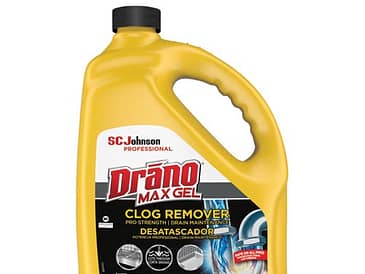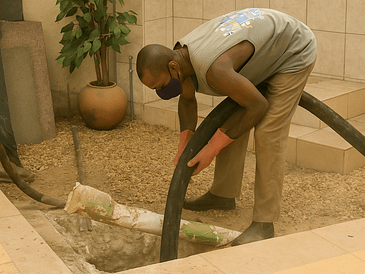If you own or are considering purchasing a property with a septic system, it is crucial that you know when and how often its tank should be emptied and pumped out. Overdoing it may damage your system or cause waste to enter the house from time to time.
Your septic system naturally separates household drain waste into three layers – sludge at the bottom, scum floating in the middle and watery effluent flowing off into your leach field.
Size of the Tank
Size of Your Septic Tank Is Key in Determining Its Pumping Frequency The size of your septic tank is one of the primary factors that influence its pumping frequency. A tank too small may overflow into your drain field and cause contamination issues for your entire system; while too large of a tank won’t hold all of the waste that enters it; solids that don’t disintegrate will flow out onto the drain field, potentially leading to clogging or system failure.
Ideal septic tank size for most homes is 1,000 gallons; this should cover most people’s daily water needs. When choosing the size of your septic tank, take into account your individual household usage – for instance if you have multiple children living under one roof then more space may be required for everyone’s usage needs.
As wastewater enters your septic tank, it separates into three distinct parts: sludge, scum and liquid effluent. Sludge and scum consist of heavier indigestible solids which must be removed, while liquid effluent remains after they have been broken down by bacteria action; more frequently you should pump these parts.
Septic tank experts agree that residential septic systems should be pumped every two to five years, depending on the size and age of both household and tank. Some individuals can extend this interval if they follow certain maintenance steps such as only disposing human waste, toilet paper and drinking water down their pipes.
There are products on the market which claim to extend periods between septic tank pumping, but these additives could actually endanger your system. They contain chemicals which could disrupt the natural balance in your septic tank ecosystem and disrupt its ability to process waste efficiently. Instead, always follow the pumping schedule provided by your septic tank company.
Number of People in the Household
Properly functioning septic systems rely on bacteria to breakdown household waste into an indigestible form that flows out of the tank and into the drain field, but this system must be regularly inspected to make sure sludge or scum levels don’t reach dangerously high levels.
Your family size plays a key role in how frequently your septic tank needs pumping. More people in your household means more solid waste entering the septic system – an average person uses 70 gallons a day; so with multiple people showering or doing laundry at any one time, this increases wastewater entering the tank every time someone showers or launders clothing.
Increased tank volume will also have a direct impact on the size and speed of accumulation for sludge and scum layers, potentially increasing how quickly they reach the top of the tank. In general, no more than 30% of capacity should be covered by sludge at any given time.
Septic tanks that are regularly pumped will typically require less maintenance, though this depends on the types and quantities of waste entering it. Never flush paper towels, feminine hygiene products, “flushable” wipes or “flushable” soap into your septic system. Furthermore, only use biodegradable laundry soap and dish detergent in your home; do not put oil, grease or pet waste in there – doing so could cause it to overflow onto your property or leak into the environment.
As well as regular pumping, your septic system should also be inspected every three years by a septic service professional to monitor how sludge and scum buildup affect the tank, so they can tell you when it needs pumping out.
When searching for septic service providers, it’s essential to obtain recommendations from friends and neighbors as well as doing your own research before hiring any company. Check their websites, customer reviews and request written estimates before making your final choice.
The Number of Bathrooms
Water from your sinks, tubs, showers and toilets travels through pipes into your septic system where it separates into three layers: solids known as sludge; grease (known as scum); and the watery effluent layer that should freely flow to your drain field. Over time, bacteria in the septic tank break down some waste materials while others go to be filtered through gravel and dirt filters before reaching groundwater – an ideal timeframe is two to five years since this requires regular pumping/cleaning to ensure smooth operations of this system.
As a rule of thumb, the more people and waste products you put down the drains in your home and how frequently they do so affects how frequently your septic tank needs pumping. Failing to do so regularly could cause its system to collapse and potentially threaten groundwater pollution as well as spread foul odors throughout your home and cause foul smells to persist throughout it.
Reduce septic tank pumping costs by efficiently using household appliances and water resources. Each person in a single-family home consumes an estimated 70 gallons of water daily; it’s easy to waste this much without even realizing it! Consider installing high-efficiency appliances, fixing leaky faucets promptly, spreading loads of laundry throughout the week in order to reduce water waste.
At the same time as you reduce water usage, limiting what goes down household drains will also decrease how frequently septic tank pumpings need to occur. Only flush human waste and toilet paper; never dispose of other items such as cigarette butts, dental floss, coffee grounds, feminine hygiene products or medications in the toilet – they could clog drains, toilets or the septic tank itself!
Maintenance, repairs and other services associated with septic tanks must also be included in your costs for pumping and cleaning services. Costs vary significantly based on the nature and extent of work required – replacing pumps or lids might cost less than fixing damage caused by tree roots while more complex tasks, like loosening compacted soil in drain fields can run into thousands of dollars.
The Style of Your Home
Septic tank systems are essential parts of waste management in any home. By collecting wastewater from your household and sorting it into three categories – sludge, effluent and scum – the system processes wastewater efficiently while requiring minimal pumping services for regular pump-outs. With proper care and maintenance you may even reduce sludge accumulation which reduces how often it needs pumping out.
An improperly maintained septic tank can result in sewage backup in your house and an unpleasant drain field, as well as increasing the risk of costly leak repairs. A professional septic service provider can evaluate your tank and help determine when it needs pumping out.
Making simple lifestyle adjustments can have a dramatic impact on how often your septic tank needs pumping. Switching out toilets for high-efficiency models could reduce water use by as much as 5 gallons per flush; installing aerators on showerheads and faucets further cuts waste; while spreading laundry loads over several days also will use less water.
Alternative cleaning methods may also help decrease septic tank pumping frequency. Instead of flushing paper towels, cigarette butts, dental floss, coffee grounds or chemical drain cleaners such as bleach or oil-based solvents down your toilet, opt for alternative methods instead.
Renters of rental properties need to take special care in keeping the septic tank maintained. Since they may not know how to use a septic system effectively, this could put extra strain on it and possibly flush things like grease into it that could clog pipes or damage its foundation.
Homeowners sometimes turn to hardware store additives that promise to reduce septic tank pumping frequency; however, such additives may not be necessary and could actually harm your tank and drain field. Tracking your sludge and scum levels can save money when cleaning is due by telling you when an inspection visit should be scheduled.





